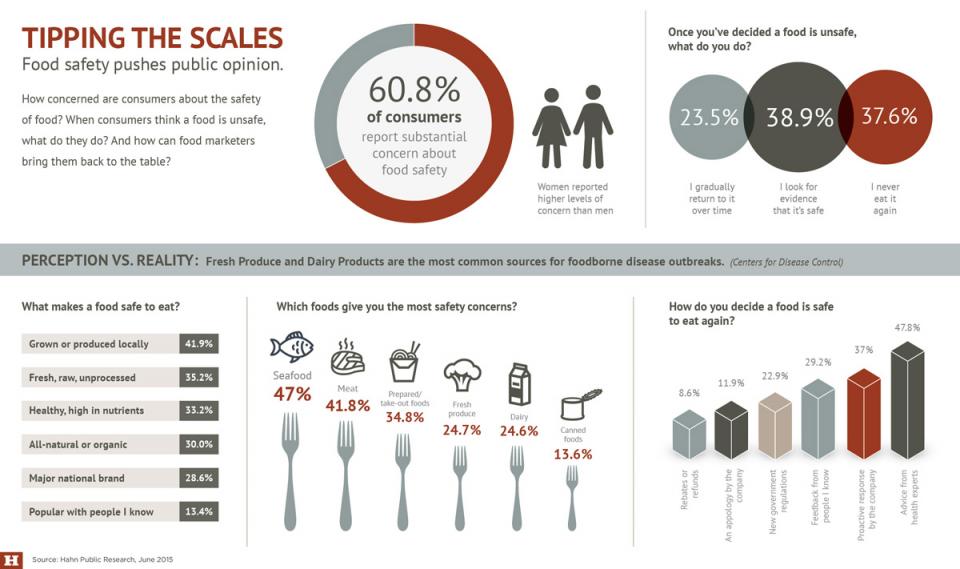Consumers rate fresh produce among safest food types
Compared with meat and seafood, consumers are less concerned about the safety of fresh produce, a new survey reveals.
However, if consumers decide a particular food is unsafe, nearly 40% say they will never eat it again.
The survey, published by Hahn Communications, Austin, Texas, received responses from about 850 individuals. Austin-based Whole Foods is one of the firm’s clients.
Only 24.3% of those responding listed fresh produce among categories they are most concerned about in regard to food safety issues. That compares with 45.5% for seafood, 42.1% for meat, 34.1% for prepared/take out foods, and 24.1% for dairy.
“The findings aligned with prior research. However, they do not align with the actual experience of foodborne disease outbreaks reported by the Centers for Disease Control, where fresh produce and dairy products are more commonly responsible,” according to the study.
If consumers decide a food is unsafe, the survey revealed that 38.9% of consumers will look for evidence that the food is safe before they buy it again. More than 37% of consumers said they “never eat it again” and 23.5% of consumers said they will gradually return to it over time.
Consumers lean most heavily on “advice from health experts” in determining if a food is once again safe to eat (47.8%), followed by “proactive response from company (37%)” and “feedback from people I know” (29.2%).” New government regulations” were important to 22.9% of consumers polled, with “an apology by the company only rating 11.9% and rebates or refunds only scoring 8.6%.
Jenny Gregorcyk, food segment leader for Hahn Public Communications, pointed out the importance of health experts to vouch for products implicated in food safety outbreaks, in addition to swift action from the company marketing the implicated food.
“Consumers are looking for a much stronger and more proactive response than an apology — that was the study in a nutshell,” she said.
The survey found that consumers were more confident in the safety of food grown locally. What’s more, the survey found that “fresh” and “healthy” foods were perceived by respondents as being safe. Given three choices of attributes that would make respondents feel that food is safe to eat, “grown or produced locally” rated 41.9%, with “fresh, raw, unprocessed” rating second with 35.2% and “healthy, high in nutrients” scoring 33.2%. Lower scores were “all natural or organic” 30%, major national brand” 28.6% and “popular with people I know” at 13.4%.
“Findings align with prior research, but not the actual experience of foodborne illnesses,” according to the report.”
The survey said the terms “local,” “fresh,” and “healthy” are remarkably consistent indicators of safety for all consumers polled.
Future research may take a closer look at the consumer perception that local, fresh food is safer than other foods, Gregorcyk said.
08/14/2015
The Packer







